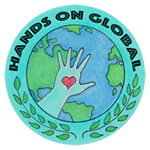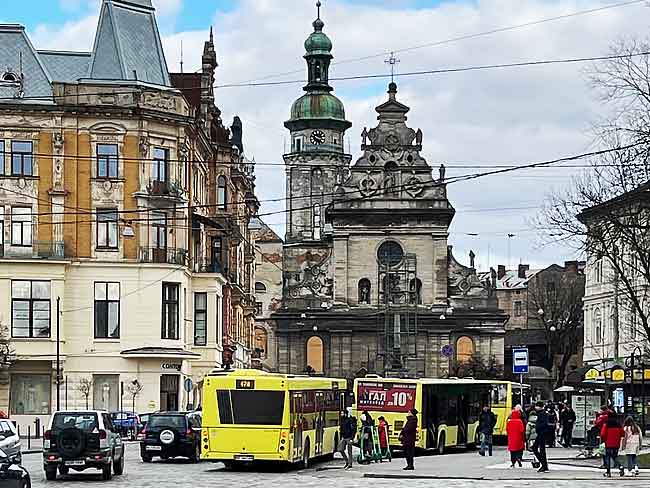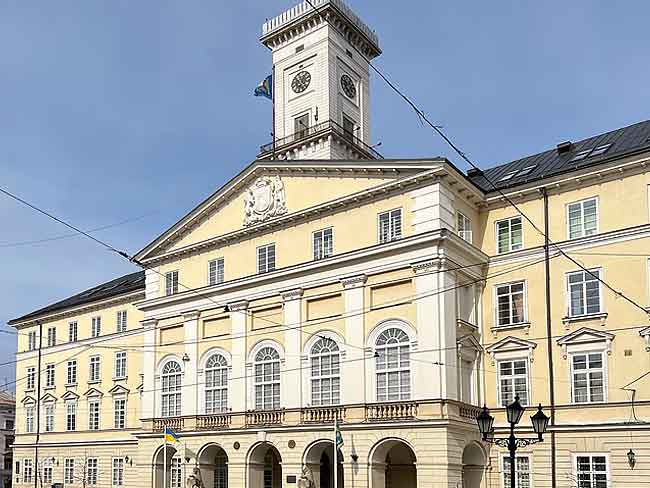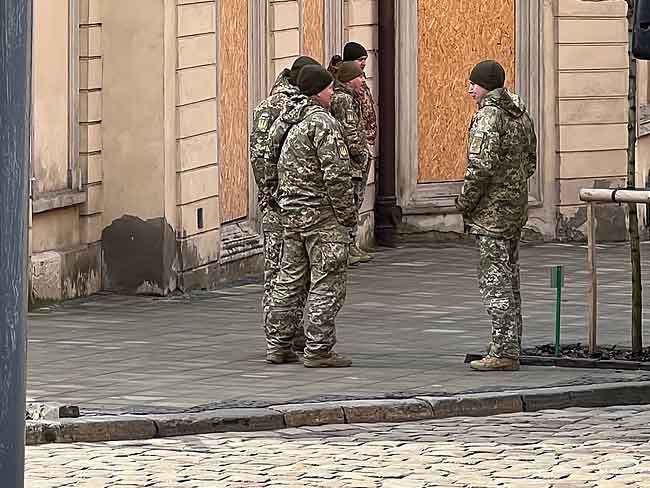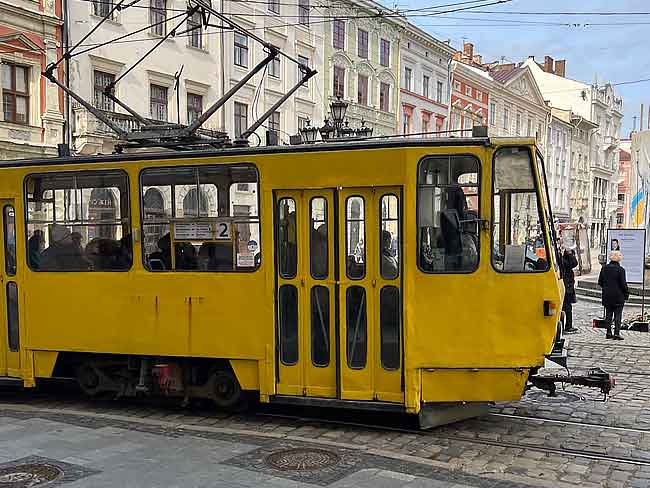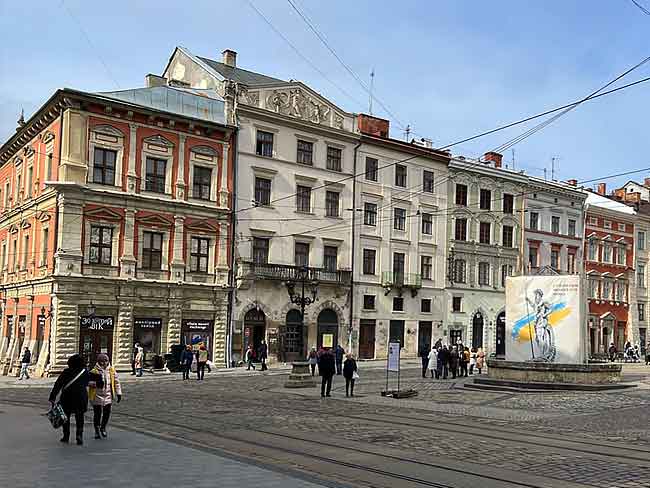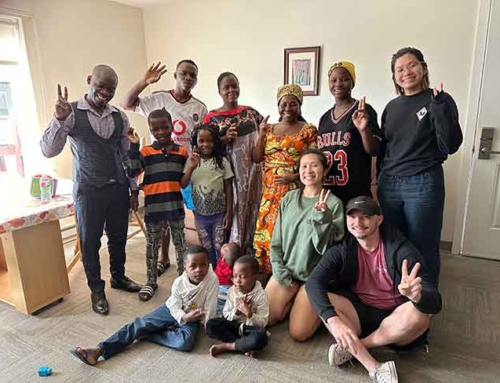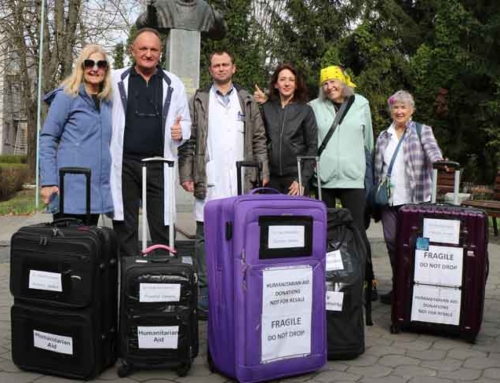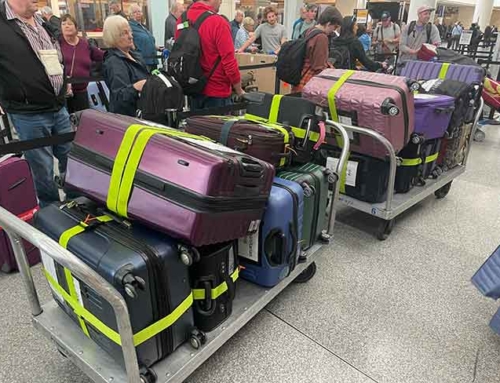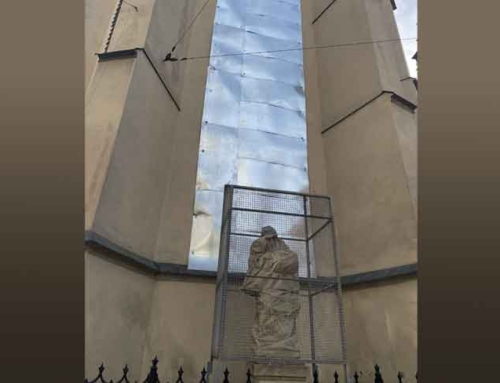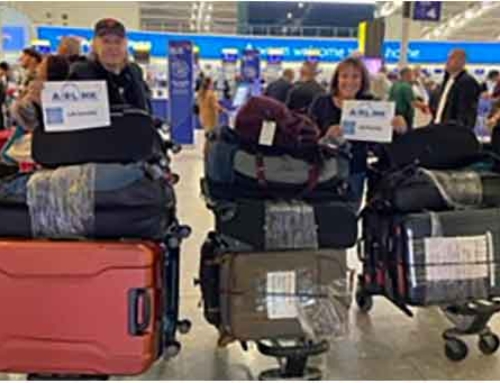UKRAINE CONFLICT
This morning I was on my own in Lviv, a large urban city in the Ukraine. It feels no different like being in a city center like San Francisco, Budapest, Vienna, Hamburg, etc. I’m thankful we have a place to stay in the city center as it is so easy to be just another person in the shuffle on the streets. I found a breakfast place for my daily cappuccino and a bite to eat. All the tables were full of young couples who look university student age. I wonder: how could so many men be in this restaurant? Even though I could not understand a word they were saying, you could see them smile, tease and be playful as young couples can be. My table was near a window from which I could see a generator. Must be used when power is turned off. When we were at Protez, they said they had a generator for when there was no electricity. I wonder: how often does this happen here?
As I walk along the busy streets, I see many men in military uniforms. Many have patches on their jackets and big boots making them look like professional soldiers in the military and not normal civilians who are in the military. An air raid siren goes off and people just continue to talk or walk at the same pace. A group of young people are outside standing, drinking their coffee and conversing as if no siren is on. And the siren is loud! So much louder than I have experienced before. It doesn’t last but a few minutes, but to me those minutes are long. I wonder: When do you know it’s real and should really look for a bunker, tunnel or underground? Is Omar right when he told Valerie you are safer outside than you are inside a building? How can so many people seem so nonchalant about air raid sirens when Lviv was under attack in 2022? and yet…. if i knew there were impacts of war in New York City and i lived in San Diego, would i discount fears and not react as I felt safe in my city?
I had to stop at a pharmacy. Two older women behind the counter read my request in Google Translate (G.T.) and then responded to me for two minutes in Ukranian. I nod, smile and keep entering the items I needed into G.T. They respond for another two minutes, trying to be helpful. And they were helpful! I got what was on my list. I noticed everything they have in the pharmacy looks like it is on the shelves. I can see: 2 boxes of this, 4 boxes of that, etc. Valerie has said HOG had a hard time getting medications in the Ukraine when their team was providing treatment to the IDPs (Internally Displace People) in 2022. When I worked for R4R, I went with the HOG team to get their medications at a pharmacy in Siret, a Romania border town. I wonder: Is it still hard for people to get their medications when they have chronic conditions? What about those who have diabetes, heart conditions, asthma, constant back pain? Valerie and Tama have told me in the Ukraine they don’t have the pain killers we have in the USA. I wonder: How do all these people cope with their pain, with access only to the equivalent of Tylenol?
I wanted to buy a bunch of Banksy mural stamps but Google Maps would send me to a yellow mailbox attached to a building, where you drop your letters to be mailed. I asked the women in the pharmacy via G.T. where to purchase stamps and one went out the door and pointed to the street where I had to go. She was so helpful!
As I walked the streets, I think of my discussion with Tama. There is a war going on to the east of their country. And yet as we take a taxi from train station to the hotel, eat our dinner in the hotel’s restaurant, watch the people walking the streets, observe them in the shops – we don’t see it or feel like a war is going on. I wonder: How do you hold both the need to be conscious there is a war where many are losing their lives AND the need to go on living your daily normal life? It’s not like we want to go sightseeing, yet as I walk the streets, I’m in love with the buildings, the outside of the opera house, the magnificent churches and I think of all the history here.
I go back to my written notes of what the trauma surgeon told us in Mukacheve:
“Russians destroy everything – cities and villages are destroyed; the cases we see in the hospital are blast injuries from big weapons; not bullets but from missilles – 20 to 30 persons near the blast are impacted. Most we treat are extremity traumatized. Chest and head trauma – we don’t think they are alive and they do not make it.
People not on front lines want to do something; we are not effective as a country, if we are afraid. We try to live a similar life to before the war and learn to be effective in this war. Not everyone can be at the front. We need to help and donate to the army if you are not on the front. Not to do 100% but 120% to help the army. There is more of a normalization as the war goes on. We understand, life must go on.”
I wonder: After a year will people in my country still want to give to the Ukraine as this war goes on? Are we in the USA willing to give to preserve democracy in this country? As I witness first-hand from a trauma surgeon’s perspective the impact of the war it is clear that medical supplies and equipment is still needed. Will people be willing to give a small percentage towards helping? We are not asked for 120%. And what am I able to give besides being the eyes and ears of friends who are not able to witness this?
Tama prompted me to write and share my reflections for those who can’t be here. These are really OUR reflections after much discussion. Like always . . . more questions than answers. For those of you who tell me to keep posting – it’s not just reading the posts, but I hope you will reflect on these questions and concepts as well.
Namaste, Cathy
Reflections from Ukraine with Cathy Evans and the Hands on Global team.
